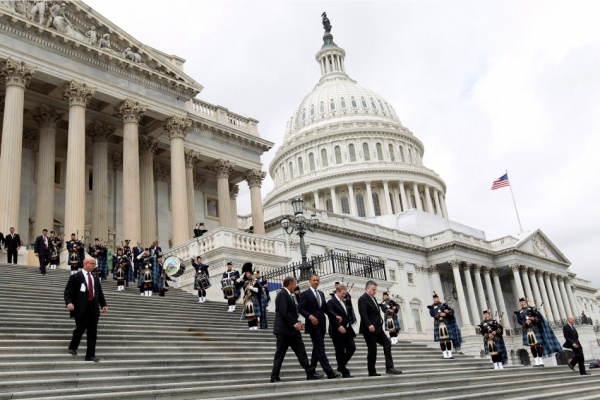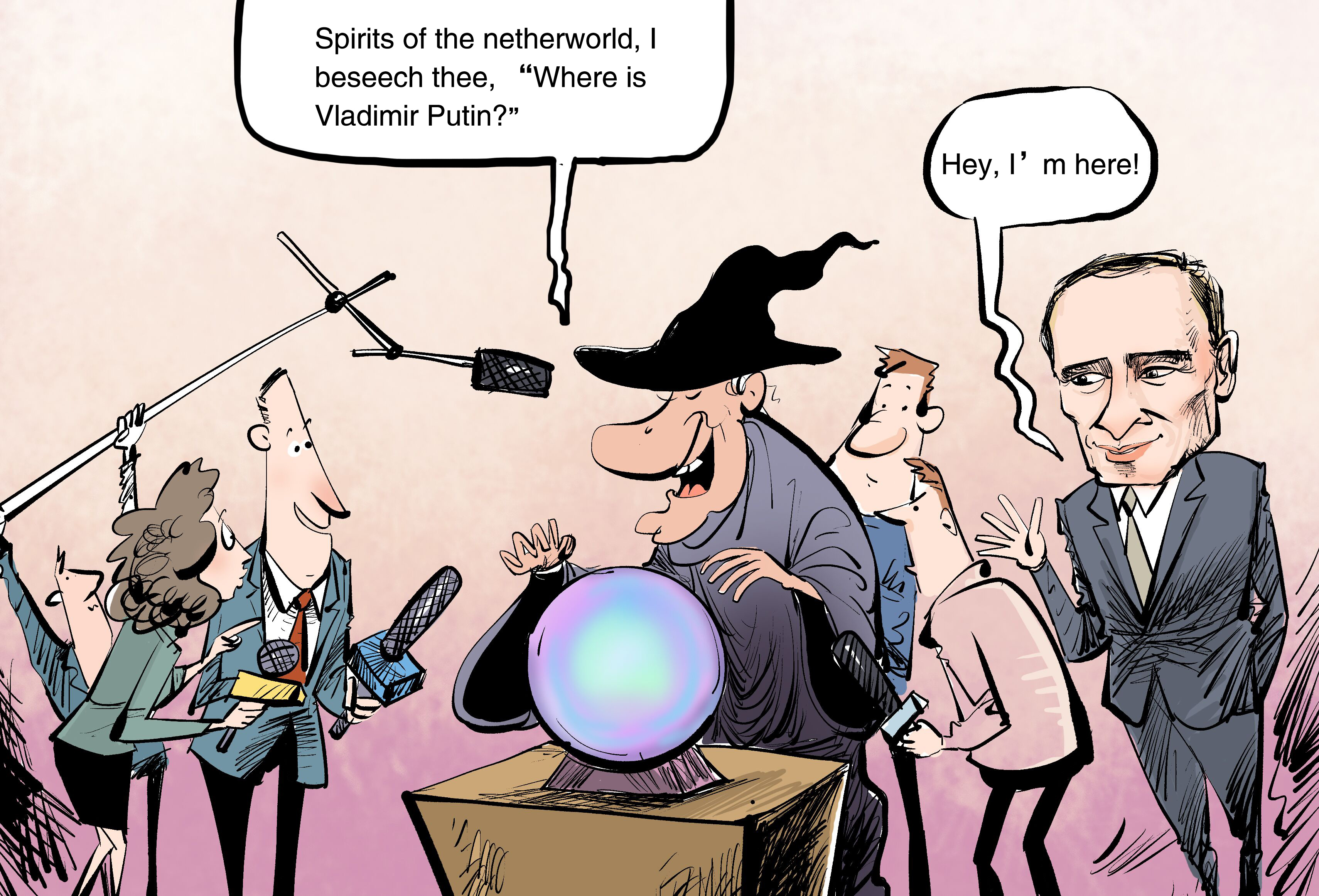Emerging field examines minds of political leaders

Political psychology of leadership is dedicated to understanding politics, politicians and political behavior from a psychological perspective.
Political psychology of leadership is an emerging field of study in China. Traditionally, researchers in this field have specialized in education or psychology and are largely affected by the theories of business administration.
However, politics and business are two distinct worlds. Business is about pursuing self-interest, while politics upholds the principle of public service. For this reason, theories of business administration are not necessarily suitable for the political field. It is of both practical and theoretical necessity to establish the political psychology of leadership as a field that is independent from the influence of theories of business administration.
Political vs business leadership
To be specific, leadership psychology in the fields of politics and business are different in the following aspects.
First, disciplinary attributes are not the same. Leadership psychology in business administration is an important component of management psychology, while political psychology should fall under the mantle of political science. The former focuses on the market, but the latter is concerned with the government and political parties.
The objects of study are respectively business elites and political leaders, including government officials at all levels, leaders of various political parties as well as leaders of political movements.
Second, goals are different. The primary goal of business is to earn a profit, which is also regarded as a sign of success. As a business leader, achievement motive becomes the main motive for success. However, the goals of political leaders are to balance various interests, promote social progress and advocate social justice. In this case, the role of achievement motive is downplayed.
Since the times of ancient Greece, the idea that leaders are driven to participate in politics by personal gain has been prevalent.
However, only leaders with a combination of power and achievement motives can succeed. In any case, government officials should adhere to the principle of public service or there will be severe consequences. In contemporary society, some government departments levy arbitrary charges, which is the result of market operation of government departments.
Third, control over subordinates is exercised differently in business and in politics. For enterprises, superiors surely have direct authority to control subordinates, but economic factors are more important. When a company faces bankruptcy or better development opportunities can be found elsewhere, employees are inclined to leave the company.
Some enterprises may have a labor shortage mostly because two parties have a disagreement in terms of compensation. In the political field, leaders control their subordinates mainly through power and economic means are relatively secondary.
Methodology
Political psychology of leadership focuses on how psychological characteristics of political leaders are formed and how these characteristics enable leaders to rise to their posts and affect their political behavior. Therefore, it can be said that political psychology of leadership is dedicated to understanding politics, politicians and political behavior through the lens of psychology.
Leadership psychology in business administration places a greater emphasis on “leadership” rather than “psychology.” Political psychology, on the other hand, focuses on the combination of leaders and psychological concepts, to explore the motive, personality, cognition and emotion of leaders.
Common research methods include questionnaires, interviews, observation, document analysis and simulation. The first four methods are widely used in social sciences studies, while simulation is an experiment that tests the psychological impact of preset options on the role-players to understand the psychology of real-life leaders.
Given the special status of political leaders, it is difficult to get close contact, so questionnaires and interviews are seldomly feasible. In fact, most research is usually conducted through “distance” observation. The aforementioned methods, such as observation, document analysis and simulation, fall into this category, and document analysis is the most common approach.
Research methods are quite different for psychology of political and business leadership in reality. For business leaders, personality and behavioral analysis can be carried out through questionnaires.
However, it is also worth pointing out that even adopting the same approach, the results may still be different. For example, in document analysis, it is difficult to differentiate between political leaders and “ghostwriters,” who draft various documents, speeches, reports and other papers for them. In the business world, this rarely happens.
Research targets
Leadership psychology in the field of business administration pays much attention to distinguished scholars who studied business-related organizations, such as Fred Fiedler who first brought up contingency theory, Misumi Juji and his Performance-Maintenance Theory of Leadership, and Kurt Lewin who introduced the notion of leadership styles.
In contrast, scholars in political psychology put an emphasis on Sigmund Freud, Harold Lasswell, James Barber, Fred Greenstein and Alexander Wendt, who are rarely cited in the context of leadership psychology in business administration.
When Freud founded psychoanalysis, some scholars explained the relationship between leaders and people in terms of sexual instinct, believing that only leaders with “love” in the heart can attract people. Since the 1920s, some scholars have linked self-esteem with political behavior, suggesting that childhood trauma might cause people to enter politics in the hopes of overcoming some inferiority complex. Since the 1980s, the most popular motivation theory integrates power, achievements and attribution motives to study the political psychology of leadership.
When German fascism came to power, scholars began to study the psychology of fascist leaders, which Theodor Adorno and Erich Fromm referred to as an authoritarian or totalitarian personality.
James Barber classified US presidents according to worldview, identifying four types of presidents, namely active-positive, passive-positive, active-negative and passive-negative. Active-positive was considered to be the ideal personality for a president because this type of person works actively while gaining emotional satisfaction.
In recent years, academics have also experimented with interpreting political psychology of leadership using the concepts and terminology of psychopathology, such as narcissism and obsessive-compulsive disorder.
Based on the level of control the leader has in the decision-making group and the integration of different opinions among group members, leadership can be classified according to three different styles: The autocratic style, wherein the leader has all the decision-making power in his hand; the democratic style, in which the leader achieves consensus after consulting the people, and the Laissez-faire style, also known as the free-rein style, wherein individuals have the freedom to make their own decisions and nobody controls the group.
In the studies of group dynamics, the concept of “groupthink,” put forth by Irving Janis, stands out. Occurring within the framework of democratic leadership style, this psychological phenomenon refers to a group in which the desire for harmony or conformity among members results in an irrational or dysfunctional decision-making outcome.
The cognitive process of leaders is at the core of the psychology of leadership. The existing cognitive styles include cognitive complexity theory, integration complexity theory, operational code and prospect theory.
Leaders at different ages have different psychological reactions. For example, middle-aged leaders are likely to yearn for competition and to excel over others. Disease will have an impact on leadership psychology, such as cardiovascular disease, which makes one more inclined to jump to conclusions, and cancer, which may disrupt the original plan.
Furthermore, gender also has an impact in leadership psychology. Compared with men, women have fewer opportunities to become leaders. Also, most female leaders take positions in education and health departments, and most of them are pacifists.
Ji Naili is a professor from the Zhou Enlai School of Government at Nankai University.
CARTOON

Guessing game
The tedium of Western media shows,
As they ponder, “Where did Putin go?”
They started searching high and low,
Heads looking to and fro.
No tweets from Twitter,
No face on the ‘book,
Or any other place that they looked.
With him nowhere to be found,
The gossip starts, rumors abound.
Does he have a new mistress?
Or maybe the flu?
Or did he come down with a case of the coup?
Then Putin returns,
With a wink and a smile,
“Relax, you guys, I’ve been here all the while.”
(Cartoon by Gou Ben; Poem by Long Yuan)
